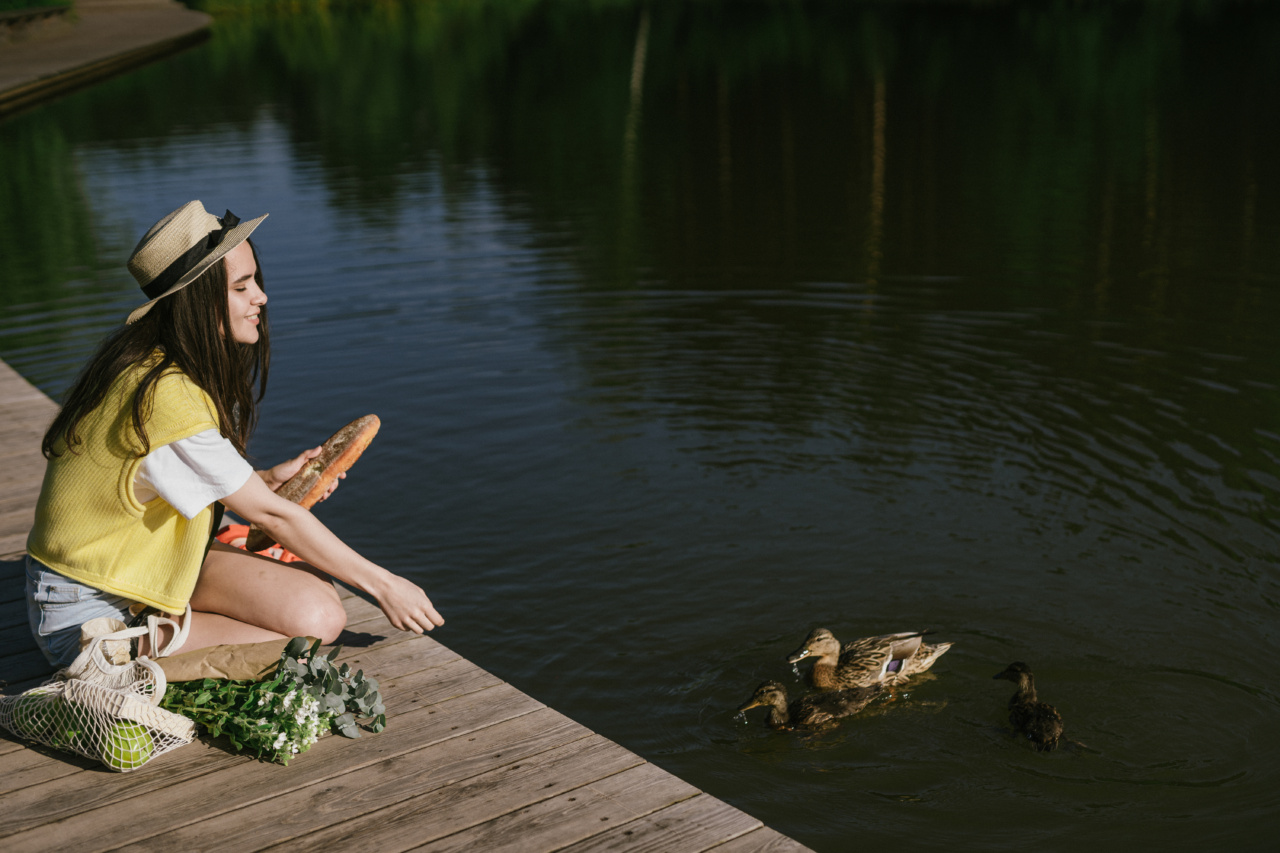Feeding ducks bread has long been a popular activity for people visiting parks and ponds. It’s often seen as a way to connect with nature and enjoy the company of these beautiful waterfowl.
However, recent studies have shown that feeding ducks bread can have harmful effects on their health and the environment. In this article, we will explore the reasons why feeding ducks bread is not a good practice and discuss alternative options that are healthier for the ducks and the ecosystem.
The Nutritional Imbalance
One of the main reasons why feeding ducks bread is harmful is its nutritional imbalance. Bread is mainly made up of carbohydrates, which provide energy but lack the essential nutrients that ducks need for a balanced diet.
Feeding ducks bread in excessive quantities can lead to malnutrition and various health problems, including wing deformities, obesity, and weak immune systems.
Digestive Issues
Ducks have a specialized digestive system that allows them to efficiently digest aquatic plants, insects, and small fish. However, their digestive system is not well-equipped to handle bread.
When ducks consume large amounts of bread, it can cause their digestive system to become clogged, leading to digestive issues like constipation and bloating.
Water Pollution
Another harmful effect of feeding ducks bread is the pollution it causes in the water. When bread is thrown into ponds or lakes, it quickly decomposes, leading to an increase in the growth of harmful bacteria and algae.
This can disrupt the natural balance of the ecosystem and harm not only the ducks but also other aquatic species. Additionally, the uneaten pieces of bread can contribute to the buildup of organic waste, reducing water quality and posing a threat to the overall health of the environment.
Aggressive Behavior
Feeding ducks bread can also lead to aggressive behavior. When ducks become accustomed to being fed bread, they may start to associate humans with food and become overly demanding or aggressive.
This can create safety concerns, especially for young children who may not understand how to interact safely with these animals. It is essential to promote natural feeding behaviors and avoid encouraging dependency on human-provided food.
Alternative Options
Fortunately, there are alternative options for feeding ducks that are both healthier for them and the environment. These options provide the necessary nutrients while mimicking their natural feeding habits:.
1. Duck-friendly Pellets or Duck Feed
Duck feed or duck-friendly pellets are specifically designed to meet the nutritional needs of ducks. These alternatives provide a balanced diet and help support their overall health.
They are available in many pet stores or online, and they float on water for easy consumption by ducks.
2. Grains and Seeds
Offering a variety of grains and seeds is another excellent alternative to bread. Ducks enjoy grains such as corn, oats, barley, and seeds like sunflower seeds. Remember to offer these in moderation and avoid excessive quantities.
3. Fresh Vegetables and Leafy Greens
Fresh vegetables and leafy greens are also beneficial for ducks. They provide essential nutrients and add variety to their diet. Ducks enjoy vegetables like lettuce, cucumber, peas, and spinach.
Chop the vegetables into small pieces to make it easier for ducks to consume.
4. Natural Aquatic Plants
If you live near a pond or lake with natural aquatic plants, allowing ducks to forage on these plants is an excellent option. These plants are a part of their natural diet and provide the necessary nutrients.
Just ensure that the plants are safe and not treated with any harmful chemicals.
5. Clean Water
Provide ducks with clean freshwater for drinking and bathing. Freshwater is crucial for their overall health and well-being. If you have a safe and accessible water source nearby, ducks will naturally find the food they need on their own.
Awareness and Education
Lastly, spreading awareness and educating others about the harmful effects of feeding ducks bread is important. Encourage visitors to parks and ponds to choose alternative options and explain the reasons behind it.
By working together, we can create a safer and healthier environment for ducks and other wildlife.
Conclusion
Feeding ducks bread may seem harmless, but it can have significant negative effects on their health and the environment.
The nutritional imbalance, digestive issues, water pollution, and aggressive behavior are all compelling reasons to avoid feeding ducks bread. Instead, opt for healthier alternatives such as duck-friendly pellets, grains and seeds, fresh vegetables and leafy greens, natural aquatic plants, and clean water.
By making these small changes, we can ensure the well-being of ducks and preserve the natural balance of their habitats.































